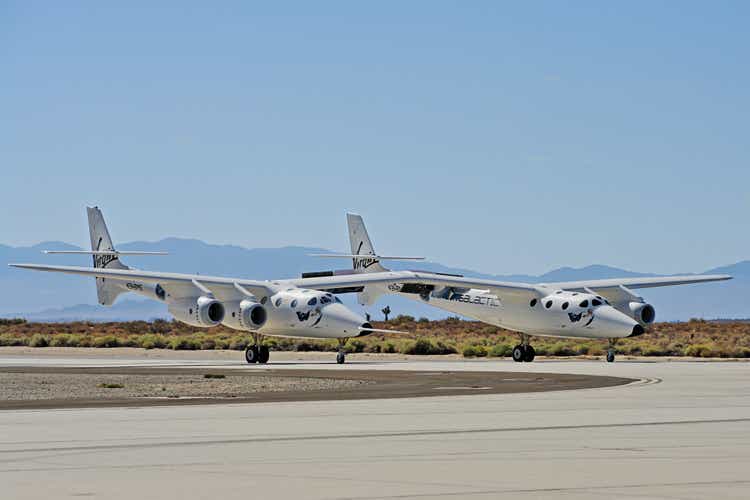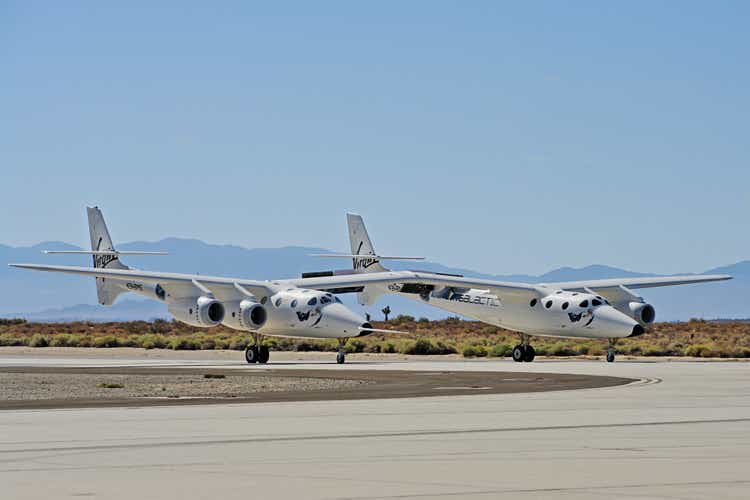
adibilio
Virgin Galactic Holdings (NYSE:SPCE) stock closed positively on Friday, snapping a six-day slump during which it lost 48%.
Shares of the space tourism company closed +6.83% at $9.47, slightly above its 52-week low of $8.55. The stock has lost 92.13% in value in the last 12 months.
Earlier during the week, the company had announced a 1-for-20 reverse stock split of its common stock. The goal of the reverse stock split was to increase its per share market price of its common stock to meet the minimum per share bid price requirement for continued listing on the NYSE.
SPCE has closed in the green for four trading days in June so far. During the month of May, it closed positively for 7 out of 22 sessions.
Looking at Seeking Alpha’s Quant Ratings, the spaceflight company has a Sell rating with a score of 1.50 out of 5. The company received a D- for profitability and an A for its growth prospects. The stock also got a B+ for its valuation compared to B- six months ago.
Turning to the Wall Street Community, about 5 out of 9 analysts in the last 90 days gave the stock a Hold recommendation, with 2 recommending a Strong Buy, and 2 recommending a Strong Sell.
Seeking Alpha analysts are cautious and see the stock as a Sell.
Virgin Galactic announced on Thursday that it had signed a new contract with the International Institute for Astronautical Sciences to fly three research astronauts as a part of a future crew aboard the Delta Class spaceship. This will be the second research mission, following Galactic 05 in November 2023. The new mission is anticipated to take place within the first year of Delta commercial service, which remains on track to commence in 2026.
“Virgin Galactic faces a bleak future due to its dwindling cash reserves, limited market capitalization, and uncertain path to profitability,” reads an analysis by Richard Durant, a Seeking Alpha analyst. “While the introduction of Delta Class ships could help the company ramp commercial operations, this is at least 2 years away and will require significant investments,” he added.
